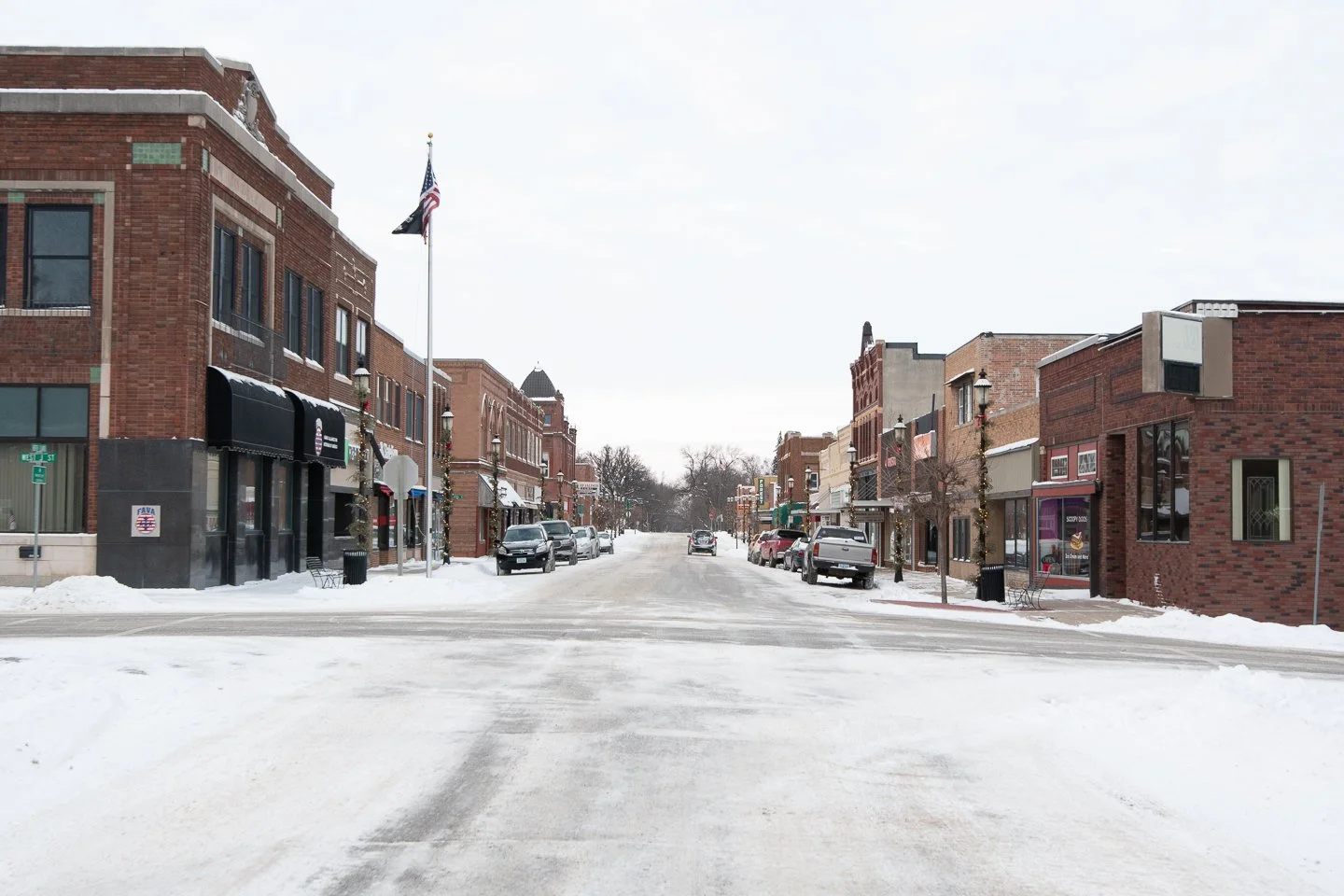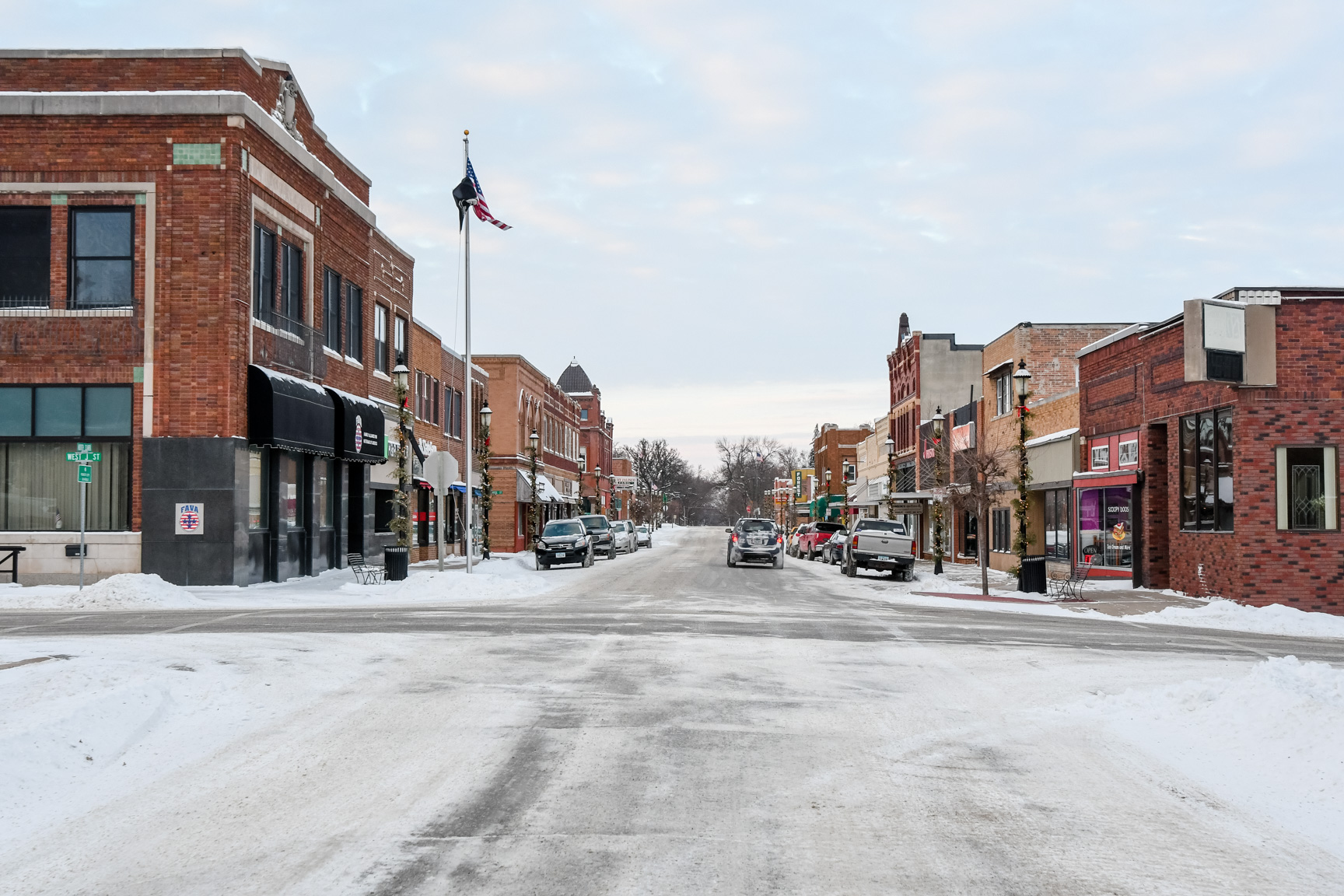Deconstructing Forest City

A snapshot is often referred to as an image capturing a moment in time. As I sat in my home office in the waning days of 2017, a light snow was falling outside and I had a hot cup of coffee in hand. When the closing New York Stock Exchange numbers scrolled across the television, one particular company caught my eye.
WGO - $55.60.
The three letters signified more than a company to me. WGO or Winnebago Industries was a way of life growing up. Everything I knew was connected to those three powerful letters. Winnebago Industries fed our family, put clothes on my back and helped me through college.
Main Street in Forest City at the end of 2017. Many in the small town situated close to the Minnesota border are uneasy about the city's future. (Photo: Joseph L. Murphy)
Winnebago was founded by John K. Hansen in 1958. The company built recreational vehicles that allowed members of what is now considered the Greatest Generation the freedom to explore the country without leaving comfort behind.
My dad started working for Winnebago Industries in 1968. He retired in 2004. During that time he held prominent positions in design, concept development, and marketing. He was highly respected and built a comfortable retirement after years of work.
After his untimely death in 2009, I heard less and less about the status of the company. My mother kept me up to date through her lens as a city council member. In 2014 she moved to Central Iowa, and the news I heard from the company was little to none.
Until recently that is.
Lately, the news I hear from friends that live in Forest City and work for Winnebago Industries concerns a corporate restructuring that has moved members of the executive team and central office employees to Minneapolis, Minnesota. A move that by some accounts could signal tough times for my hometown of Forest City.
That is why I decided to chronicle the impact that decisions by the executive team of Winnebago Industries will have on Forest City.
Many believe there is a divide forming between the success of the company and the vitality of the city. For those that have lived in Forest City, this theory will not come as a surprise. It would seem the fortunes of the town, or lack thereof, have always been tied to the success of Winnebago. However, for myself and others in the community, this point in time feels different.
As a point of reference I will use December of 2017 as a snapshot to paint a picture of Winnebago Industries and the town of Forest City going forward.
I am calling the ongoing series "Deconstructing Forest City." In the upcoming months, years and maybe even decades I want to shed light on the struggles and successes of Forest City. I hope to do that, by using journalism as a tool, that provides first-hand accounts of what is happening in the North Iowa town of 4,013 people according to the 2016 census.
If you would like to help with this ongoing story or if you have feedback you can leave a message below or email me at jmurphpix@icloud.com.
For more than two decades, Joseph L. Murphy has had the pleasure of meeting and connecting with people from all walks of life through photography. He has photographed presidents and heads of state, traversed the winding alleyways of the Fes Medina in Morocco, photographed the sprawling countryside and people that make up Argentina and covered events that have defined the U.S. Most recently, Murphy’s travels have taken him to Cambodia, Mexico, China, Vietnam and Ecuador.
He has spent the past 20 years specializing in agriculture photography for multiple organizations, publications and marketing projects.
A graduate of the University of Iowa, Murphy determined at an early age that his love of photography would shape his vision for life.
